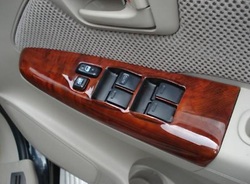A WRITER'S WIT
If you want to be witty, work on your character and say what you think on every occasion.
Stendhal
Born January 23, 1783
Untitled: Part 3

It wasn’t your idea to work here, but since you were dismissed from a job you’d held for twenty years, you took what you could find. Yes, Ms. Markham took pity on your soulful female face, as you poured out your heart to her. Though you didn’t cry, she handed you a tissue as you told her how the school district let you go because you dared to teach a certain book—not because you were a poor teacher, not because you approached one of your more approachable male students or even slapped someone silly for talking during your lecture. No, it was because you chose to teach a book about a young girl who gets pregnant and has it terminated. On your last day, you saw a total of nine mothers-to-be among your one hundred and fifty pupils—squirming in their seats, wondering why no one had told them their rights about participating in such a process. By sixth period, when you got to the part of the book where the young heroine is lying spread eagle in the stirrups and her parents barge into the procedure room (it’s not an operation), the principal dismissed your last class and ordered you to his office. For an hour you screamed at him. From your cell phone, you called a union representative, who dispatched posthaste an attorney before the last bell. All to no avail. You were canned. Over and out. With all those years under your belt, you’re only now eligible for a pension. But you will have to wait another twenty years to actually draw the funds, because you know no other school district will ever hire you. Should you withdraw the retirement money, or start over in a different career? It’s a conundrum; you’ve never known anything but teaching.
Markham Finer Toyotas is located at the edge of the city on one of those monster lots. A luxurious, low-slung showroom of four thousand square feet is attached to a larger warehousey building where mechanics keep Markham Finer Toyotas in shape and meet all the finer Toyota requirements for routine service. It’s not like any dealership you’ve ever seen before. To begin with, the people in sales must meet challenging quotas, or it’s buh-bye, take the highway. Eddie Klaas has been at it the longest, so he’s sort of assigned the silver-haired set, although he could sell a Toyota to just about anyone. The walls of Eddie’s little glass cubicle are lined with Plexiglas Salesman of the Year awards, going all the way back to the eighties. Yesterday you listened in on his pitches, which are very warm and genuine. No high pressure. He offers some kind of discount right off the bat, to let the customer know he’s not trying to take them for everything they’ve got. Very disarming.
After savvy customers realize they’re getting all the options for free, they also realize Eddie’s got them where he wants them. If they’re really savvy, they’ll deal for a Toyota on the last day of the quarter, when sales personnel have to file quota reports. They can take Eddie down to where he makes five hundred dollars a car, and if he feels like it, he’ll let them have it for that. Sweet. Eddie’s sixty-eight, with long silver hair he keeps slicked back. He has a bit of a paunch, too, but he enters the dealership each morning with great purpose, as if he were going to teach War and Peace (your all-time favorite novel), when at most, all he’ll be doing is selling one of those huge Sequoias.
In a free moment, you think ahead to what a dealership might look like in a hundred years. Little women in individualized hovercraft will be offering you hits of cinnamon coffee that you snort instead of drink, because by then the species will have evolved to plump little piggies with tiny mouths and big limp ears from all the iPod listening, all that truncated cell phone banter (yo, dude, sup)––not to mention enlarged thumbs from, well, you know. It’s frightening to think about, so you move on to your next chore. You recall the brief encounter with Mrs. Markham the day before.
“Ariella,” Markham said. “I want you to check on the rest rooms.”
“What?”

This set-up seems very un-Toyota. You crawl back to the men’s rest room and grope your way down the ladder. You replace the ceiling tile, just as you begin to hear rustling of skirts and the click of heels against the floor in the hall (and those are just the men, har har). Yes, very un-Toyota. Why, you just have to look at the finished product. Such honest and clean lines. Such fine workmanship.

“Ariella, we like all our employees to know the feel of the line,” Ms. Markham told you near closing time. You still didn’t really know what your job was all about. You’ve done nearly everything except sell a Toyota. “That way you will want to work your hardest. We’re all about team effort at Toyota.”
Everyone is so nice, really nice. You never hear a cross word. You never hear anyone curse. You never hear a heated argument or even one of those held in private, with loud asides. People hold doors for one another. They bring cake on someone’s birthday. Well, they even do that on The Office, often with hilarious results, but then TV life is always so much funnier than your own very real life.
At the end of the day, you report back to Ms. Markham and ask about the tunnels.
“Very good,” she says, tapping the edge of her desk with her long red red nails. “Otherwise, I would’ve had to let you go. And that would’ve been a shame. You’re so smart and attractive. So young.”
“I’m forty-two,” you say.
“We won’t split hairs,” she says. “I’m twice your age.”
“No, really?” you say, because she could pass for seventy, seventy-five.
“It’s what happens when you keep working. All my retired friends are dead, even one of my sons who quit working at fifty-five.” She pauses a moment, as if to pray.
You keep quiet, hoping she’ll dismiss you, so you can go home and check your messages, scroll through your e-mails for job appointments.
“That business up there is left over from the last century, the last agency,” she says, pointing to one of the barely recognizable charcoal squares in the ceiling. There exists a checkerboard of black-and-white acoustical tiles, so unless you’re informed, it’s rather hard to discern which ones are use for surveillance. “A GM dealership that didn’t make the grade.”
“But spying . . . it’s so top-down,” you say. “I thought Toyota was above it all. Teamwork and all that.”
“Righto,” she says. “But things have begun to disappear.”
“Like what?” you ask.
“Oh, honor. Loyalty. Integrity.”
Not toilet paper? you think. Pink soap? Packets of coffee?
“I can’t figure it out,” she says. “On paper we’re selling everything but the kitchen sink, but at the end of each month, I, the owner, am making less and less. I’ve called in my accountants, and all they do is scratch their heads. I’d fire them but then everyone would know something was awry.”
“What do you want from me?” you say.
“Good old fashioned snooping,” she says. “People won’t suspect you, Ms. Pines. You haven’t developed any alliances yet. Have you?”
“Hardly.”
“So you see what’s at stake here,” Markham says, standing and smoothing her knit dress of red and gold. She is a thin woman, but not shrunken like many people over eighty. Statuesque and well groomed, she may be kidding about her age. But then you catch sight of her hands; no longer smooth and white, they’re mottled, the joints accentuated, though you don’t believe they’re arthritic. No, they don’t look crippled, just old. “I could play along as if nothing were wrong. I’ve plenty of funds. Whoever’s doing this could run the place into the ground, and I’d be fine, personally. No, it’s for all the employees who’ve been faithful to me and Toyota.” She momentarily lifts a blind and looks out into the showroom.
Then she sits again. “It’s a very fine organization. You know, my late husband hated the Japanese. He fought at Iwo Jima. He knew how stubborn and vitriolic they could be. Before he died in 1970, he was only forty-five, he knew they’d stage a comeback some day, he just didn’t know it would be like this.” She lifts one of her mini-blinds again and points out to the floor, to all those beautiful cars. “I think that one could be our problem.”
NEXT THURSDAY: A STORY PART 4
TOMORROW: NEW YORKER FICTION 2014


 RSS Feed
RSS Feed